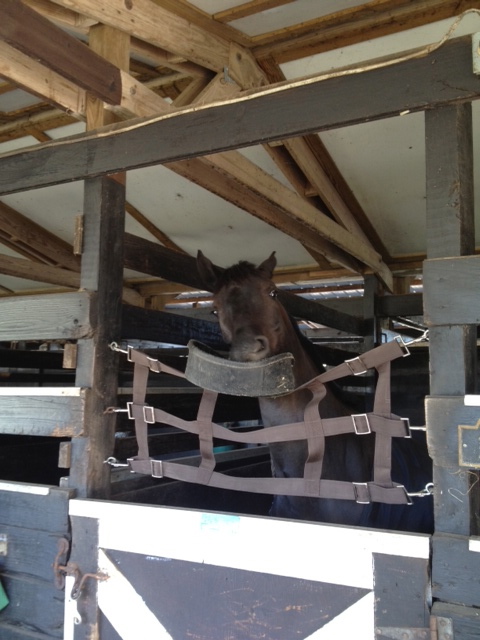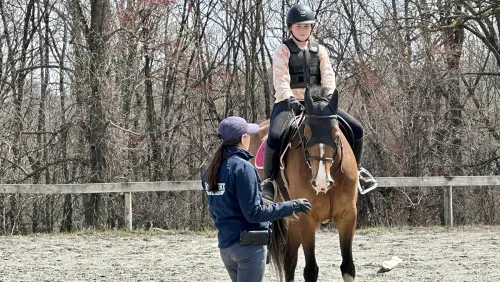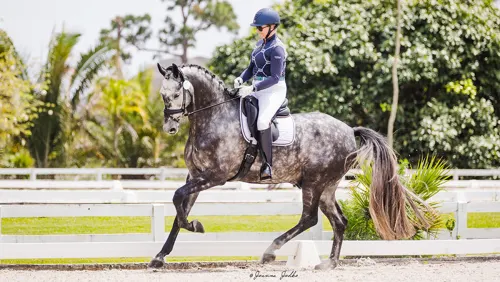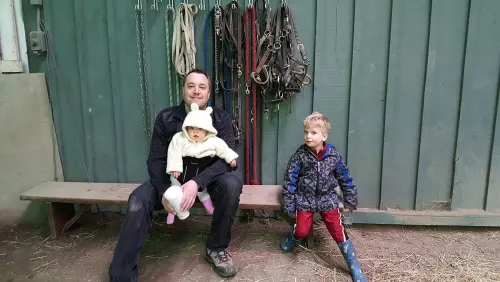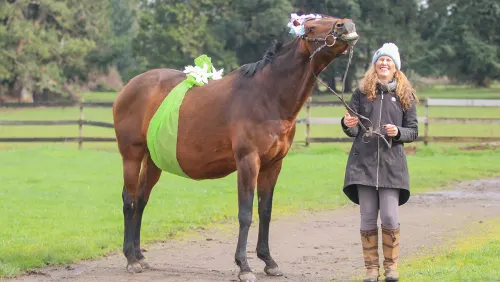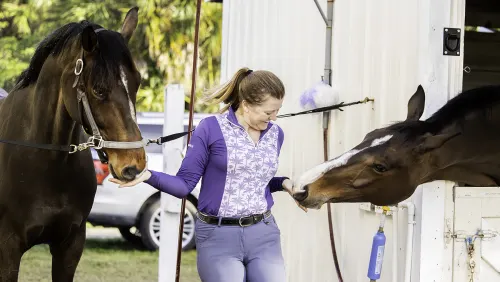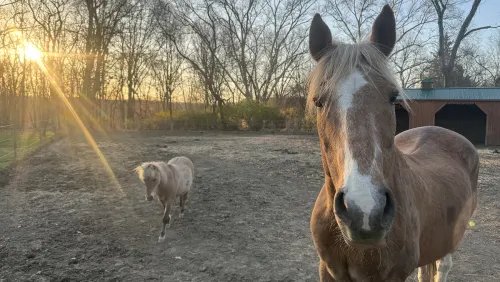I’m a big “NCIS” fan, have been since the show came out (though I never have time to watch it “live”; I haven’t had cable for a few months now, so I Netflix it, and am, therefore, always a season behind. No spoilers here!). If you’ve never watched the show, the main character, Special Agent Gibbs, has his own list of 50-or-so rules that form his personal creed. Some are funny, some are serious, and all are poignant and good.
We at Sprieser Sporthorse have been developing our own list of rules. They’re constantly in flux and always being added to. Here’s the list as it stands right now.
1. Your horse must work harder than you. This is the be-all-end-all of our philosophy. I’ll work hard, for sure. I’ll come in early and stay late and grit my teeth and do whatever needs doing. But horseyfriend, for 23 1/4 hours a day you’re your own man. For the remaining 45 minutes, you are mine. Suck it up and do as you’re told.
2. Whatever the horse wants to do by nature, train him to do the opposite. The lazy horses should be able to go Mach 2 with their hair on fire; the looney ones should learn to lope around like old lesson ponies. The ones that want their heads up should go with their heads down, and the ones that like to live haunches-left should love haunches-right, and on, and on. When you can cover both ends of the spectrum of any training angle, you can get The Truth that lies in between.
3. Don’t hire people you hate. This is fairly self-explanatory, I’d think, but back in the day, that didn’t stop me. Lesson learned.
4. If it feels wrong, it probably is. This is a broader-reaching version of this rule, which used to read: When good horses start doing Bad Things, call the vet. At the end of the day, horses (and people, and the reliability of your tractor, and…) change, but rarely overnight unless there’s something more sinister going on.
ADVERTISEMENT
5. No buying horses under 7 (most of the time). We’ve found that, particularly in warmblood horses, the horse you meet at 3 and 4 is very different than that same horse at 5 or 6. I’d prefer that my clients NEVER bought anything younger than 9, which tends to be when warmblood horses, at least, decide to tuck their shirts in, part their hair down the middle and show up for work like responsible citizens of the world, but certainly in young horses there’s a lot of room for petulant, difficult and generally annoying behavior. Some of us, professionals and amateurs alike, can deal with the nonsense of a young and developing horse, and still more can’t afford them once their older. But most of the time, young horses are for professional or pramateur (my made-up word for amateurs who ride as well as any good professional) hands only. Youngins’ in the hands of less experienced horsepeople are doomed to a long, difficult, scary and usually expensive road.
6. Going Grand Prix will make you a religious person. There are multiple points in the test where you will just sit back and pray to God, whether you believe in one or not, to, please, for the Love Of All That’s Holy, Just Make This Thing Piaffe/Passage/Get The Ones/Stop Pulling On The Right Rein/Keep Going Until This Test Is Freaking Over, etc.
7. Keep your phone handy. You probably don’t need it in the arena during your lesson, of course, but keep some form of communication with you at all times. Deer jump out of the woods while you’re trail riding. Trees fall and land on electric wires and start sparking. Horses get hurt in the field, colic, you name it, and never near your land line. And you never know when you’ll need to capture a moment like the one at the top of this blog with your phone’s camera.
8. The learning curve is bell-shaped. When you decide you want to learn how to ride a horse, you go to the Yellow Pages or Google lessons near you or something, and you sign up with someone based on location or price or a personal recommendation from a friend or the size of their ad, and you follow your new trainer’s advice on everything: what boots and breeches and helmet to buy, what test to show, what horse to buy or lease, what vet/farrier/saddle fitter to use. And as you learn more, your perceived level of knowledge increases by a magnitude until, when you know about 30 things, you believe yourself to be an expert, and you seem to spend a lot of time giving advice to others, whether you’re qualified to do so or not – and it’s usually not. At some point, you begin to understand how little you know, and go back to listening to the advice of experts, until your opinion comes from a place of real experience and perspective.
(In the interest of full-disclosure, I seek out the advice of experts ALL THE TIME!)
9. Don’t go anywhere without a knife.
ADVERTISEMENT
10. Once a horse has learned a clean flying change, he’s allowed to be weird. Midgey plays with his feed pan; Fender wears his Jolly Ball; Ella’s just plain weird. And Billy, the King of Strange, gets pissed when other horses, who are not him, get to go in the horse trailer, but if the judge’s booth at a horse show is inside a trailer, he’s apoplectic.
The list is in constant flux, as is Agent Gibbs’. But like Rule No. 9 (a rule we share), we also have our last rule in common:
11. Sometimes, you’re wrong.
What are your barn, or life, rules?

